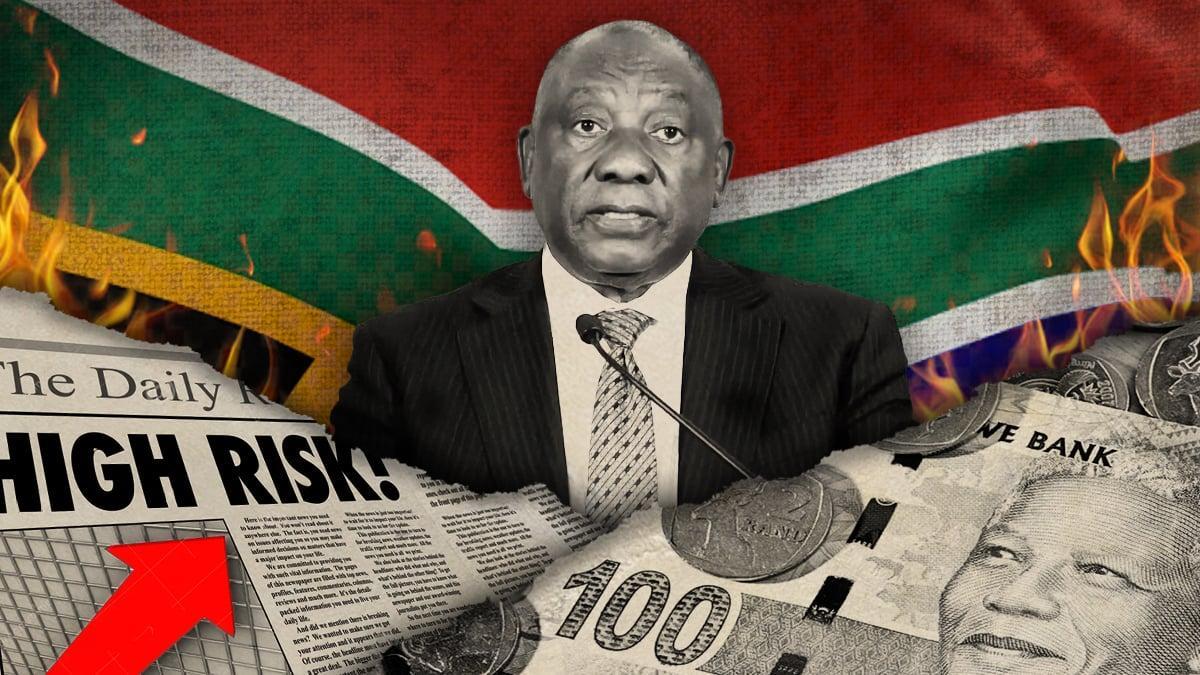Shaun Jacobs
Africa-Press – South-Africa. South Africa’s government is unable to protect its citizens and reliably provide basic services such as electricity and water, indicating that it is a failing state.
While the state has not completely failed, South Africans are increasingly having to take matters into their own hands to secure basic services.
This may be through investing in alternative energy sources such as solar, backup water systems, private education, and private security.
The state’s alternatives, whether it be Eskom, the government education system, or the police, have been unable to fulfil their mandates in recent years.
Efficient Group chief economist Dawie Roodt explained that the failing of the South African state can be best seen in its inability to keep citizens safe.
“There are different ways of looking at the role of the state and what it should provide. But one thing everyone can agree on is that it should keep its citizens safe,” Roodt told BizNews.
“I am a libertarian and believe in a free market system and so on. But the primary function of the state, regardless of your ideology, is to protect its citizens.”
South Africa’s state is failing to do this, with crime and corruption widespread, even within the government’s ranks.
The country’s murder detection rate has plunged from 31% in 2011/12 to 12.4% in the latest release from the South African Police Services.
“It is called the social pact whereby I fund the state through taxes in exchange for it protecting me and providing basic services,” Roodt said.
Roodt explained that when citizens have to take the law into their own hands through private security or self-defence, it is a sign that the state is failing.
“When citizens are forced to take the law into their own hands, it is a clear sign of a state that is simply failing in its primary function of protecting the people of the country,” Roodt said.
“This is a dangerous place we are living in, and the reason is that the state is not doing its job and its duty.”
“We can rightfully ask the question whether we still have the responsibility and the obligation to keep on funding the state through our taxes.”
Roodt said it is legitimate to ask whether the social pact still holds in South Africa because it has been damaged significantly over the past decade.
The graph below, courtesy of Stanlib chief economist Kevin Lings, shows the decline in the performance of the South African Police Service.
What is keeping South Africa from the edge
South Africa has been prevented from becoming a failed state by the resilience of some key institutions, such as the National Treasury and the Reserve Bank.
Business also plays a larger role in the economy through electricity generation and transmission, as well as logistics.
This has resulted in some increased positivity regarding the country’s trajectory, with the formation of the Government of National Unity (GNU) also boosting confidence.
While the GNU itself is not enough, it shows that South Africa can course correct and that the players on the field are changing.
It also shows that, over time, the government should be able to use the lessons learned from well-functioning institutions, such as the Reserve Bank and National Treasury, and public companies that have seen their performance improve, such as Eskom.
Earlier this year, Standard Bank CEO Sim Tshabalala explained how the government’s partnership with business can improve outcomes for South Africa.
“South Africa provides an incredible example of how government and business ought to work together in a way that is properly governed and structured,” Tshabalala said.
This is largely in reference to the partnership in South Africa between Business for South Africa (B4SA) and the government.
The partnership between business and government has focused on the energy crisis, logistical inefficiencies, and crime and corruption.
“We are working hammer and tongs in partnership to try to get GDP growth to above 3% for this year, and that is completely possible,” Tshabalala said.
The CEO explained that this partnership was built on the understanding that government and business should focus on what they do best in their respective spheres.
“Respecting that business is not Caesar and that Caesar must perform the role of Caesar is important,” he said.
“They must set up the legal and regulatory environment, but then frankly get out of the way so that business can execute and do what needs to be done.”
Concerning South Africa specifically, Tshabala said the country has incredible competitive advantages but has failed to capitalise on them. He called for the state to improve its efficiency and capitalise on them.
“Please improve the quality of our institutions. In the case of South Africa, we use the lovely phrase ‘Please capacitate the public sector’,” he said.
“Some parts of the public sector are excellent, such as the National Treasury and the Reserve Bank. Replicate what is happening in those across the board.”
“Please capacitate the state,” he repeated. “Please professionalise it. Please continue to make doing business easier.”
Source: dailyinvestor
For More News And Analysis About South-Africa Follow Africa-Press






